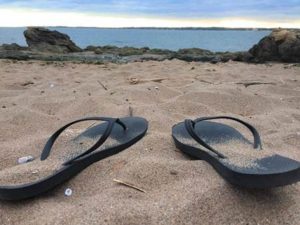Plaintiff Experts Can Now Change Stories between Deposition and Summary Judgment?
August 24, 2021
News and Views on Environmental & Toxic Tort Federal and State Legal Issues and Developments
August 24, 2021
 It just got tougher to pin a California plaintiff’s expert down at deposition.
It just got tougher to pin a California plaintiff’s expert down at deposition.
Generally, a witness cannot give a declaration opposing summary judgment that is inconsistent with prior discovery responses (D’Amico v. Board of Medical Examiners (1974) 11 Cal.3d 1), and an expert witness cannot testify beyond the opinions offered at deposition (Jones v. Moore (2000) 80 Cal.App.4th 557, 565 [“When an expert deponent testifies as to specific opinions and affirmatively states those are the only opinions he intends to offer at trial, it would be grossly unfair and prejudicial to permit the expert to offer additional opinions at trial.”]).
A recent California decision throws both those principles into question. Harris v. Tomas Dee Engineering Co. ruled that an expert’s declaration advancing a new theory was not only admissible, but created a factual issue that required reversing summary judgment to the defendant.
The new theory was on a key issue in the case: whether the decedent was ever exposed to asbestos from the defendant’s activities. At deposition, industrial hygienist William Ewing testified, “If he wasn’t present when the work was done, then I don’t think there’d be any issue regarding any exposure.” When plaintiffs were confronted with a potentially fatal motion for summary judgment based on this testimony, however, the expert backtracked. He provided a declaration opining that Mr. Harris “did not need to be present at the exact time that the insulation block was being removed, swept up, and/or installed by Thomas [Dee] workers to be exposed.” Why? Because of the theory of re-entrainment. “This cycle of re-suspension is well-documented and is generally accepted in the industrial hygiene field.”
The trial court rejected the new opinion as contradictory, and granted summary judgment. The Court of Appeal reversed. It ruled that the Jones v. Moore bar applied to an expert’s trial testimony, but not to testimony on summary judgment. This is contrary to Perry v. Bakewell Hawthorne, LLC (2017) 2 Cal.5th 536, 541-543, where the Supreme Court held that the same evidentiary standards apply on summary judgment and trial. Harris does not mention Perry.
Harris also ruled that D’Amico was more limited than many defense counsel suppose, and did not bar the changed testimony. The Court of Appeal distinguished D’Amico as involving factual assertions by a party. “In contrast, in the present case, Mr. Ewing’s declaration relates a scientific theory that he apparently did not discuss in his deposition, and his statements in the declaration do not contradict any prior testimony regarding facts he observed.” Further, he explained the difference “by referencing the re-entrainment theory, which he stated is widely accepted in the scientific community.” The court distinguished cases where no explanation was offered.
Harris provides several important takeaways for defense counsel.
First, the case underscores the importance of asking the right questions of expert witnesses at deposition, ensuring that the opinions are clearly stated, and clearly stated to be the only opinions the expert has to offer.
Second, noticeably absent from the discussion in Harris was the adequacy of plaintiff’s expert witness declaration under California Code of Civil Procedure section 2034.210. Had the defense focused on the adequacy of the expert witness declaration – e.g., whether it actually advanced the re-entrainment opinion – instead of “contradictory testimony,” the result may have been different.
Third, rather than focus on excluding contradictory opinions at summary judgment, the prudent defense lawyer should focus examination at deposition on foundation for an expert’s opinions, and then assert evidentiary objections to those opinions at the summary judgment phase.
Fourth, Harris calls into question whether any strategy to lock down an expert witness can be 100% effective, or whether a plaintiff expert can always advance a new theory if it is “out there” in the literature. There are still concrete steps that counsel can take.